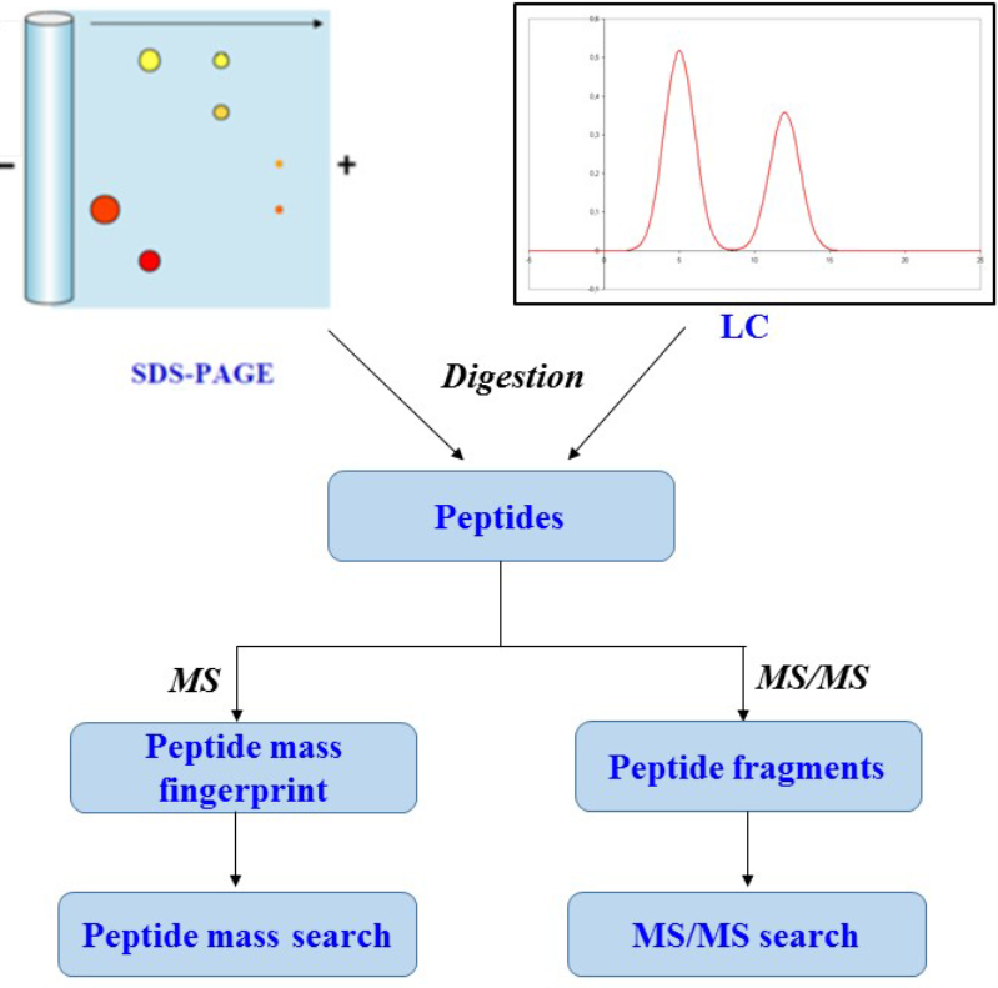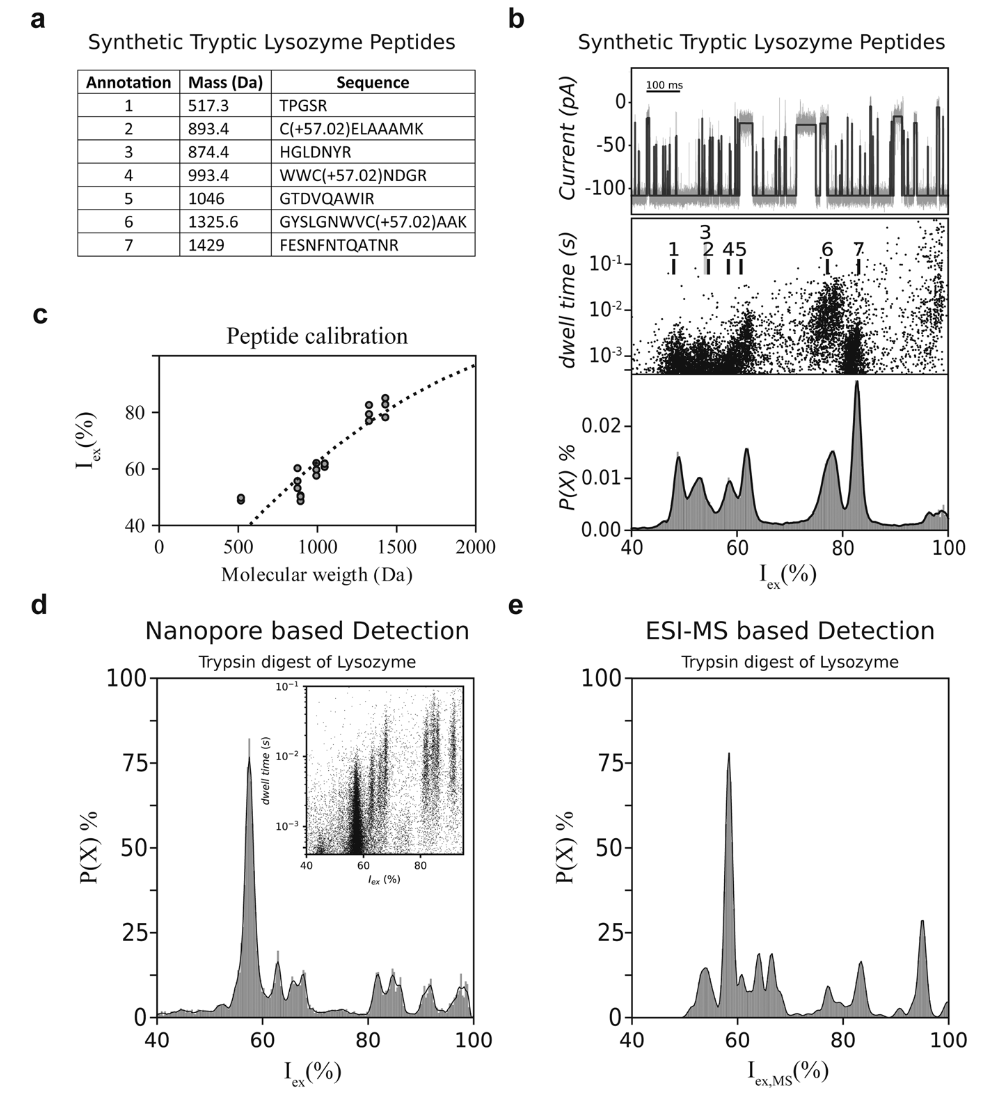Peptide Fingerprinting Service
Peptide Fingerprinting is a widely used proteomic technique that provides a powerful tool for molecular weight determination and protein identification. The core principle of peptide fingerprinting involves the enzymatic digestion of proteins into smaller peptides, followed by mass spectrometric analysis of their mass-to-charge (m/z) ratios. The resulting peptide mass spectrum serves as a unique "fingerprint" of the protein, allowing for the accurate determination of its molecular weight. MtoZ Biolabs offers cutting-edge peptide fingerprinting services that contribute to critical areas such as drug development, quality control, and regulatory compliance.
Services at MtoZ Biolabs
MtoZ Biolabs, an integrated Chromatography and Mass Spectrometry (MS) Services Provider, provides advanced proteomics, metabolomics, and biopharmaceutical analysis services to researchers in biochemistry, biotechnology, and biopharmaceutical fields. Our ultimate aim is to provide more rapid, high-throughput, and cost-effective analysis, with exceptional data quality and minimal sample consumption.
At MtoZ Biolabs, our Peptide Fingerprinting service utilizes advanced MS instruments, including the Thermo Orbitrap Fusion Lumos, to deliver highly reliable results for molecular weight analysis. The process begins with the separation of proteins using SDS-PAGE or liquid chromatography (LC), depending on sample complexity and purification needs. Once separated, the proteins undergo digestion with specific enzymes, such as trypsin, which cleaves proteins at arginine and lysine residues. The resulting peptides are then ionized using techniques like MALDI or ESI, and their mass-to-charge ratios (m/z) are measured with exceptional accuracy. These experimental peptide masses are matched to a protein database using specialized software, ensuring the accurate identification of the protein and precise molecular weight determination. Our service is designed to provide quick, reproducible results, supporting your research and development needs in the biotechnology and pharmaceutical industries.

Figure1. A Typical Workflow of a Peptide Fingerprinting Experiment
Service Advantages
1. Advance Analysis Platform
MtoZ Biolabs established an advanced Peptide Fingerprinting Service platform, guaranteeing reliable, fast, and highly accurate analysis service.
2. One-Time-Charge
Our pricing is transparent, no hidden fees or additional costs.
3. High-Data-Quality
Deep data coverage with strict data quality control. AI-powered bioinformatics platform integrates all peptide fingerprinting data providing clients with a comprehensive data report.
4. Exceptional Sensitivity and Specificity
Our service excels in detecting proteins even at low concentrations, thanks to the high sensitivity of modern mass spectrometers. Each protein produces a unique pattern of peptide masses, ensuring precise identification, even within complex biological samples or mixtures.
5. Minimal Sample Requirement
This technique requires only small amounts of protein, making it particularly advantageous when working with limited or precious biological samples. This is especially useful in clinical research, where sample volume may be restricted, allowing for extensive analysis even with scarce materials.
6. Broad Applicability and Flexibility
Peptide Fingerprinting can be applied to a wide range of sample types, including cell lysates, tissue extracts, and purified proteins. Its compatibility with various proteases and mass spectrometry techniques provides flexibility, enabling researchers to customize their experiments according to specific needs and explore diverse research applications.
Applications
1. Biologics Characterization: Ensuring protein identity and stability in biologic drug development.
2. Recombinant Protein Verification: Verifying the molecular weight of recombinant proteins for quality control in production.
3. Protein Purity Assessment: Assessing protein purity by identifying contaminants and confirming protein composition.
4. Proteomic Profiling: Mapping complex proteomes to determine molecular weights and identify proteins in biological samples.
5. Biomarker Discovery: Identifying novel biomarkers for disease research and diagnostics.
Case Study
Lysozyme digested with trypsin yields distinct peptide fingerprints. Mass spectra identify peptide masses and alkylated modifications. Ionic current and excluded current measurements provide clear peptide profiles, correlating well with molecular weights (Fig. 2b, c). The exclusion current spectrum density confirms peptide abundance and distribution (Fig. 2d), with peaks further validated by ESI-MS, reflecting relative peptide abundance and variability (Fig. 2e). This robust fingerprinting approach enables reliable molecular weight determination and identification, offering high sensitivity and specificity for proteomic analysis.

Figure 2. Lysozyme Fingerprinting Using FraC-G13F-T1 Nanopores
Deliverables
1. Comprehensive Experimental Details
2. Materials, Instruments, and Methods
3. Peptide Map Information Analysis
4. Bioinformatics Analysis
5. Raw Data Files
MtoZ Biolabs, an integrated chromatography and mass spectrometry (MS) services provider.
Related Services
Peptide Mass Fingerprinting Analysis Service
How to order?







